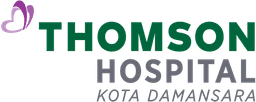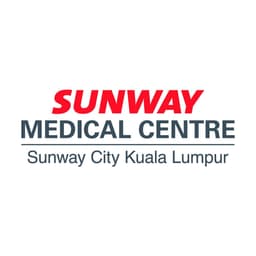How to Plan a Medical Tourism Trip to Malaysia: Best Hospitals, Recovery Resorts & Tips
If you’ve ever considered combining a tropical vacation with top-notch healthcare, Malaysia might be just the place you’re looking for. The country is quietly becoming a leading hub for medical tourism in Southeast Asia. According to the Malaysian Healthcare Travel Council (MHTC), in 2019 alone, it received over 1.2 million healthcare travelers. Although that number dwindled during the pandemic, it’s now climbing back up fast.
But is it really worth flying here for medical treatments? In this post, I’ll walk you through why Malaysia is one of Asia’s medical tourism hotspots, which procedures people come for, what hospitals are top-rated, and — just as importantly — where to stay nearby so you or your family member can rest and recover in comfort.
Table of Contents
ToggleWhy choose Malaysia for medical tourism
World-class healthcare at a fraction of the cost
The most obvious reason is the cost savings. Procedures in Malaysia can cost up to 80% less than in countries like the US, UK, or Australia, even when you include flights, accommodation and other travel expenses.
But affordability doesn’t mean cutting corners. Many Malaysian hospitals use the same equipment, techniques, and standards as those in Western countries. The difference is in the pricing structure, overall cost of living, and travel expenses, not the quality of care.
International accreditation & modern facilities
Many of Malaysia’s top private hospitals are JCI-accredited (Joint Commission International), which means they meet global standards for safety and quality. Facilities are modern, clean, and in some cases resemble luxury hotels more than clinics.
You’ll often find specialist centers within the same complex, including radiology, lab work, and pharmacy, so there’s no need to be referred all over town.
English is widely spoken
A large number of Malaysian specialists have been trained in the UK, US, Australia, or Singapore, or completed part of their education or fellowship abroad. And in day-to-day life, you’ll find that English is Malaysia’s second language.
So, most medical professionals are fluent in English, which removes one of the biggest concerns for foreign patients: miscommunication.
Other commonly-spoken languages include Malay / Indonesian, Mandarin, Cantonese, Hokkien, and Tamil.
Shorter waiting times
Unlike in the public healthcare system, where waitlists for non-urgent procedures can stretch for months, Malaysia’s private healthcare system is time efficient. Consultations and surgeries can often be arranged in just a few days — ideal for travelers with limited time.
Comfort, convenience, and care
The Malaysia Healthcare Travel Council has a concierge team and call center to assist with everything from airport pickup to post-treatment support, which includes a 24/7 helpline, care coordination to ensure a smooth transition between care teams, progress tracking, and emotional support for patients and families.
Year-round tropical climate
Malaysia’s year-round tropical climate allows for open-air recovery and relaxation all year long. The consistently warm weather means you won’t have to deal with harsh winters or sudden seasonal changes that can complicate recovery. The natural sunshine provides a healthy dose of vitamin D, which supports immune function and bone health — both important factors for post-surgery healing.
Beyond the physical benefits, Malaysia’s green, tropical landscapes and laid-back atmosphere create a calming environment that helps reduce stress and promote emotional well-being.
Easy entry
Malaysia’s strategic location in the heart of Southeast Asia makes it incredibly easy to reach. It serves as a major hub with excellent air connectivity to the rest of the Asia-Pacific region, and there are direct flights from major cities like London, Sydney, Tokyo, and Dubai. This ease of access means you can get here without complicated transit routes or long layovers.
Popular medical treatments in Malaysia
Here are some of the most common procedures international visitors come for:
- Dental work (crowns, veneers, implants)
- Cosmetic surgery (rhinoplasty, liposuction, facelifts)
- Orthopedic procedures (knee/hip replacement, spine surgery)
- Fertility treatments (IVF, IUI)
- Cardiology (angioplasty, bypass surgery)
- Cancer treatment & health screening packages
- Neurology (stroke rehabilitation, epilepsy treatment, nerve disorders)
- Gastroenterology (colonoscopy, endoscopy, liver and digestive system care)
- Eye surgery (LASIK, cataract)
Top hospitals for medical tourism in Malaysia
MHTC Elite Partner Hospitals
If you’re looking for the most reputable hospitals in Malaysia, start with the MHTC Elite Partners. These are handpicked by the Malaysia Healthcare Travel Council (MHTC) as the country’s most prestigious private healthcare institutions that meet the highest global standards.
All Elite Partner hospitals are accredited by international healthcare bodies, and a select few are recognized for:
- Specialty Care Quality or Health (SCQH)
- The Malaysian Society for Quality in Health (MSQH)
- The Australian Council on Healthcare and Standards (ACHS)
- Baldis International standards
- Planetree for Technological Accreditation Committee (PTAC)
1. Thomson Hospital Kota Damansara
Location: Kota Damansara, Selangor
Specialties: Cardiology, oncology, orthopedics
📍 Where to stay nearby:
2. Sunway Medical Center
Location: Subang Jaya, Selangor
Specialties: Oncology, cardiology, neurology
📍 Where to stay nearby:
3. Sunfert at Bangsar South
Location: Bangsar South, Kuala Lumpur
Specialties: IVF, women’s health, pediatrics
📍 Where to stay nearby:
4. Subang Jaya Medical Center
Location: Subang Jaya, Selangor
Specialties: Cardiology, orthopedics, oncology
📍 Where to stay nearby:
5. Regency Specialist Hospital
Location: Masai, Johor
Specialties: Cardiology, neurology, orthopedics
📍 Where to stay nearby:
6. Prince Court Medical Center
Location: Kuala Lumpur
Specialties: Oncology, cardiology, transplant
📍 Where to stay nearby:
7. KPJ Johor Specialist Hospital
Location: Johor Bahru, Johor
Specialties: Cardio, orthopedics, emergency medicine
📍 Where to stay nearby:
8. Penang Adventist Hospital
Location: George Town, Penang
Specialties: Cardiology, oncology, orthopedics
📍 Where to stay nearby:
9. Pantai Hospital Kuala Lumpur
Location: Kuala Lumpur
Specialties: Emergency medicine, cardiology, surgery
📍 Where to stay nearby:
10. Institut Jantung Negara (National Heart Institute)
Location: Kuala Lumpur
Specialties: Cardiology, cardiac surgery, heart transplant
📍 Where to stay nearby:
11. Mahkota Medical Center
Location: Melaka (Malacca)
Specialties: Oncology, cardiology, orthopedics
📍 Where to stay nearby:
12. Loh Guan Lye Specialists Center
Location: George Town, Penang
Specialties: Cardiology, oncology, neurology
📍 Where to stay nearby:
13. KPJ Damansara Specialist Hospital
Location: Petaling Jaya, Selangor
Specialties: Oncology, cardiology, surgery
Where to stay nearby:
14. KPJ Ampang Puteri Specialist Hospital
Location: Ampang, Selangor
Specialties: Orthopedics, neurology, emergency medicine
📍 Where to stay nearby:
15. Island Hospital
Location: George Town, Penang
Specialties: Neurology, neurosurgery
📍 Where to stay nearby:
16. Gleneagles Penang
Location: George Town, Penang
Specialties: Cardiology, oncology, neurology
📍 Where to stay nearby:
17. Gleneagles Kuala Lumpur
Location: Kuala Lumpur
Specialties: Oncology, cardiology, surgery
📍 Where to stay nearby:
18. Cardiac Vascular Sentral Kuala Lumpur
Location: Kuala Lumpur
Specialties: Cardiology, vascular surgery, cardiac surgery
📍 Where to stay nearby:
19. Alpha IVF & Women's Specialist Center
Location: Petaling Jaya, Selangor
Specialties: IVF, women’s health, reproductive medicine
📍 Where to stay nearby:
MHTC Ordinary Member Hospitals
Aside from the elite hospitals featured above, there are numerous other private medical institutions across the country that are part of the MHTC Ordinary Member network.
These hospitals are carefully evaluated and selected by a joint committee of public and private sector representatives, each one holding at least one international healthcare accreditation.
Where to recover: peaceful spots after your procedure
You don’t have to stay in a hospital bed post-surgery. With doctor’s approval, many patients opt to spend their recovery period in calm, beautiful surroundings.
Best wellness resorts for post-treatment recovery in Malaysia
- The Banjaran Hotsprings Retreat (Ipoh)
A luxury wellness sanctuary with natural geothermal springs and limestone cave spas. - Mangala Estate Boutique Resort & Spa (Kuantan)
Eco-luxury villas surrounded by lakes and tropical greenery. - Tanjong Jara Resort (Terengganu)
Traditional Malay-style beachfront resort focused on relaxation and gentle wellness. - The Datai Langkawi
A rainforest retreat by the sea that blends luxury with nature and holistic healing. - One & Only Desaru Coast (Johor)
Exclusive coastal resort with wellness programs and Ayurvedic-inspired spa treatments. - The Chateau Spa & Wellness Resort (Bukit Tinggi)
Europe-meets-Malaysia in this French-inspired wellness hotel with full medical spa services. - Ambong Pool Villas (Langkawi)
Private villas with sea views, on-call spa treatments, and chef-prepared meals on request. - Lexis Hibiscus Port Dickson
Overwater villas with private pools and a more family-friendly recovery setting. - Villa Samadhi Kuala Lumpur
A hidden urban oasis ideal for post-treatment rest without leaving the city.
How to plan your medical trip to Malaysia: step-by-step guide
✅ Book your consultation or procedure first
Before anything else, lock in your appointment or treatment date. Most private hospitals in Malaysia allow international patients to:
- Book online or via email
- Get a cost estimate or treatment plan in advance
- Request a visa support letter
✅ Understand the visa requirements
If you’re planning medical treatment in Malaysia, you will need to get the special eVISA for Medical. To do so, you must first secure:
- An appointment confirmation letter from one of the MHTC hospitals;
- A complementary support letter from MHTC, usually arranged by the hospital itself
The eVISA for Medical allows a single-entry trip to Malaysia. It must be used within 3 months of issuance, and your passport must remain valid throughout that period. Visit the official Malaysian e-Visa website for further information.
✅ What to pack for a medical trip to Malaysia
The good news is you don’t need to overthink your packing. Malaysia is a modern country with well-stocked pharmacies, 24-hour convenience stores, and countless shopping malls, so if you forget something, it’s usually easy to buy locally.
That said, if you prefer to be prepared and avoid unnecessary purchases, here’s a list of things that you should bring along, depending on your needs:
📄 Important documents:
- Passport (6+ months validity)
- Return or onward flight ticket
- Printouts of hospital confirmation emails
- Copies of your medical history or test results
- Insurance documents (if applicable)
- Emergency contacts and your doctor’s details back home
🧼 Hygiene & comfort:
- Antibacterial wipes or hand sanitizer
- Slippers or easy-on shoes (especially post-surgery)
- Loose-fitting, comfortable clothing
- Shawl or cardigan (hospital rooms are often cold)
- Travel pillow for flights or hospital beds
- Reusable water bottle
- Basic toiletries if you prefer your own
- Menstrual products, if applicable. You’ll find sanitary pads easily in Malaysia, but tampons are limited in choice, and menstrual cups/discs are rare.
💊 Medications & health items:
- All current medications in original packaging
- Doctor’s prescription (if you’re carrying restricted meds)
- Small medical kit (plasters, antiseptic, thermometer)
- Compression socks (if you’re flying long-distance)
📱 Electronics:
- Universal adapter (Malaysia uses Type G sockets)
- Extra charging cables or power bank
- Phone with roaming, eSIM, or local SIM card
- Earphones (great for downtime in waiting rooms or during recovery)
🌧️ Climate prep:
Malaysia is warm and humid year-round, so bring:
- Light, breathable fabrics
- Sunscreen and umbrella / raincoat if you plan to be outdoors a lot
- Insect repellent (if you’ll recover in a rural area)
Wondering what clothes to bring? Read my guide on what to wear in Malaysia.
✅ Choose the right accommodation
You’ll want somewhere:
- Close to your hospital or clinic
- With private bathrooms and in-room dining (for comfort and hygiene)
- With elevators or ground-floor access if mobility is an issue
- Look for places with kitchenettes if you’ll be on a special diet
✅ Consider insurance
Even if your procedure isn’t covered, it’s wise to buy travel insurance that includes medical complications or trip delays due to treatment.
Look for policies that:
- Cover medical evacuation if needed
- Include trip cancellation or interruption
- Offer cashless hospital admission (rare for elective treatments, but good to check)
✅ Stay connected
Download apps that make your trip easier:
- Grab – For rides to and from the hospital
- Google Translate – Most staff speak English, but it helps
- Klook / Get Your Guide / Viator – For booking tours or airport transfers
Or read my post on the most useful apps for traveling in Malaysia.
Final thoughts
Medical tourism in Malaysia isn’t just about affordable procedures, but also about being treated with care and efficiency in a place where recovery doesn’t have to feel clinical or cold. Although the idea of traveling for medical care might seem daunting at first, once the logistics are in place, it becomes clear why thousands of people each year choose Malaysia.
If you’re considering taking that step, now’s the time to start planning. From choosing the right hospital to booking a resort to recover at, every detail matters and getting it right can make your whole experience smoother and more reassuring.
Planning to stay a little longer after your treatment?Check out the rest of my blog for travel tips, destination guides, and hotel recommendations all around Malaysia. Explore more Malaysia travel stories here »




























